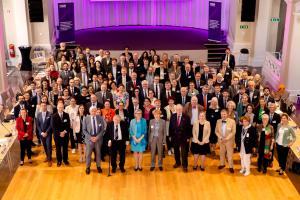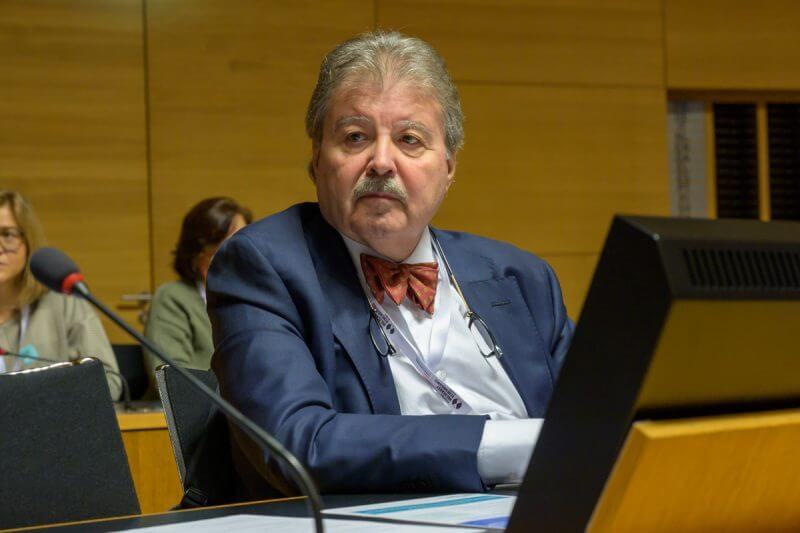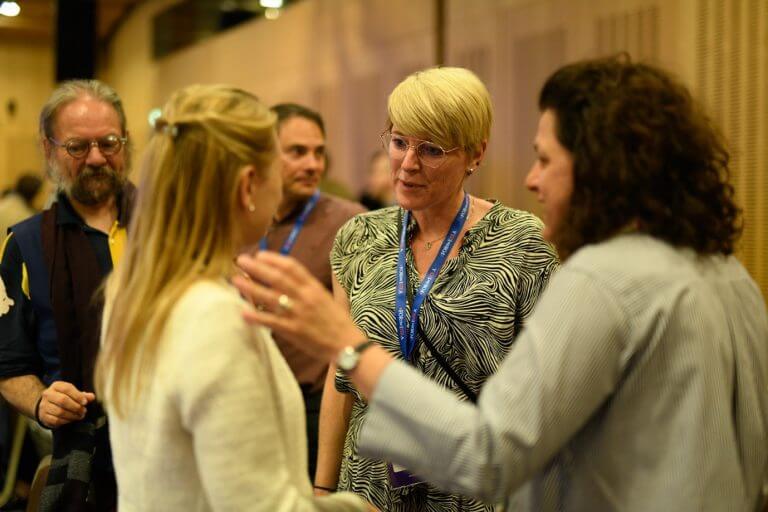
The IHRA addresses the situation in Ukraine at Stockholm plenary meetings
Stockholm 23.06.2022. The International Holocaust Remembrance Alliance (IHRA) has successfully concluded its first plenary meetings under the Swedish Presidency. Guided by the motto, “Together for impact,” more than 200 experts, political representatives, and representatives of international organizations and civil society met in Stockholm over four days to advance education, remembrance, and research of the Holocaust and the genocide of the Roma.

In her address to the IHRA Plenary, Prime Minister Magdalena Andersson said: “We must remain steadfast in our efforts to counter violence, hatred and ignorance, which are increasingly undermining peace and democracy. Holocaust denial and distortion are gaining ground – we cannot allow this to happen.”
“We mustn’t forget that we are bound together in this work not only by choice, but also by the facts of history,” IHRA Chair Ambassador Ann Bernes underlined in her welcome address. “Our meetings are critical reminders of how important it is to face this history and protect the facts, so that we can develop policies and foster societies that can move forward together.”
The Stockholm plenary meetings were held four months into Russia’s unjustified military aggression against Ukraine and gave considerable focus to the issue, with statements in keeping with the IHRA Chair’s statement on Ukraine and Babyn Yar made on 3 March 2022, deploring the extensive loss of life and rejecting the gross Holocaust distortion being used to justify it. Member Countries reaffirmed their commitment to democratic principles and efforts to counter Holocaust distortion, antisemitism, and antigypsyism, and engaged in extensive discussions on possible initiatives to address the situation and assist Ukraine within the areas of expertise of the IHRA, and in dialogue and collaboration with its Permanent International Partners, as well as with the wider international community.
The IHRA’s expert Working Groups and Committees made several concrete proposals that will be brought forward and put into action, in keeping with continued discussions between Member Countries.
IHRA Honorary Chairman Professor Yehuda Bauer stressed the importance of all IHRA Member Countries showing their support for Ukraine. “The IHRA has an important voice, the voice of 35 countries. We should say what we think, and we must inform the world that we stand behind the Ukrainian efforts to resist an unprovoked aggression by a major power,” he said.
The meetings’ impact-oriented approach was also highlighted during discussions on progress made in relation to the concrete pledges presented at the Malmö International Forum on Holocaust Remembrance and Combating Antisemitism – Remember-ReAct, as well as various IHRA tools, including the IHRA Toolkit Against Holocaust Distortion and the Protect the Facts campaign, the working definition of antigypsyism/anti-Roma discrimination and the Guidelines for Identifying Relevant Documentation for Holocaust Research, Education and Remembrance.
Furthermore, and importantly, the IHRA secured the long-term sustainability of its work by adopting a new financial model for membership contributions.
The Plenary also welcomed Aotearoa New Zealand as a new Observer Country. The IHRA now consists of 35 Member Countries, 10 Observer Countries, and 8 Permanent International Partners.
In addition, the Plenary confirmed that Israel will take on the Presidency of the IHRA in 2025, 80 years after the end of the Holocaust and 15 years after last holding the Presidency in 2010.
Special events included both an exclusive seminar by the Living History Forum and the new Swedish Holocaust Museum, which featured an address by Swedish Minister of Culture Jeanette Gustafsdotter, and a reception at the Ministry of Foreign Affairs, which featured an address by the Swedish Minister of Foreign Affairs Ann Linde.
Sign up to our newsletter to
receive the latest updates
By signing up to the IHRA newsletter, you agree to our Privacy Policy




